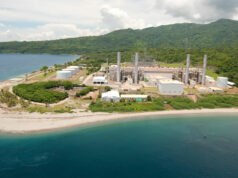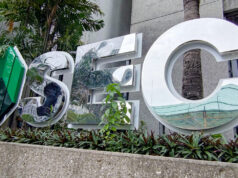By Vann Marlo M. Villegas, Reporter
THE Court of Tax Appeals denied for lack of merit the motion for partial reconsideration of Petron Corp. over the denial of its refund claims over excise tax paid for alkylate importations in the amount of P65.2 million from April to September 2015.
The company is seeking reconsideration of the decision on the findings that the alkylate importations are subject to excise taxes and there was no double taxation in the consolidated cases.
Petron claimed that the court violated the principle of “construing tax laws strictly against the government and in favor of the taxpayer.”
Petron reiterated that alkylate is not a product of distillation, a physical separation process of chemicals, since it was not produced by distilling crude oil. It claimed that Section 148(e) of the Tax Code does not tax products whose raw materials are products of distillation since the law only taxes naphtha, regular gasoline and other similar products of distillation.
It also claimed that alkylate is not similar to the nature of “naphtha and regular gasoline in use, purpose, or nature” and cannot be considered as similar products of distillation, which are subject to tax imposition under the Tax Code.
In a resolution dated Jan. 12, the court’s second division said the appeal was bereft of merit.
“Accordingly, in view of the foregoing disquisitions, the Court finds no new matter or compelling reason to justify the reversal or modification of the assailed Decision,” it said.
The court’s second division said that petitioner brought the cases to the court to claim refund and the company must substantiate its claim refund, as “the Court recognizes, as it always has, that the burden of proof to establish entitlement to refund falls on the taxpayer claimant.”
The court said that Section 148(e) of the Tax Code only stated “other similar products of distillation” and nothing suggests that distillation “should be the primary or direct process” a product has undergone.
It said the absence of the said qualification leads to ruling that products undergoing the process of distillation directly or indirectly may fall within the scope of “other products of distillation.”
It also junked Petron’s claim that alkylate is not a product of distillation as it was not produced by distilling crude oil, noting that testimonies of the Bureau of Internal Revenue’s witnesses said that alkylate is produced by the process of alkylation but the raw materials used for it, olefins and isobutane, are products of crude oil distillation.
The court also said that alkylate product “has to be recovered via a distillation process to improve its quality.”
“Taking all of the foregoing into consideration, the Court concludes that, from its inception up to the end of the process of alkylation, the process of distillation contributes to the production, purification and enhancement of alkylate in order for it to be fitted as fuel additives or blending components in the production of motor fuel or gasoline,” it said.
“As such, the Court considers alkylate as a product of distillation similar to naphtha and regular gasoline and, therefore, subject the same to excise tax under Section 148(e) of the NIRC of 1997, as amended,” it added.
The tax appellate court also opposed the double taxation claim, noting that the taxes mentioned were imposed on different matters.
It said that excise tax is imposed upon importation and an imposition of taxes takes place when goods go through reprocessing. One element of double taxation is absent such as that two taxes must be imposed on the same subject matter, it said.
“In other words, the first imposition is simply concerned with the importation of articles, while the subsequent imposition is on the manufacturing or production of goods in the Philippines for domestic sale or consumption or for any other disposition,” it said.
“Such being the case, the imposition of excise tax is on two different subject matters. As a result, no double taxation exists,” it added.



